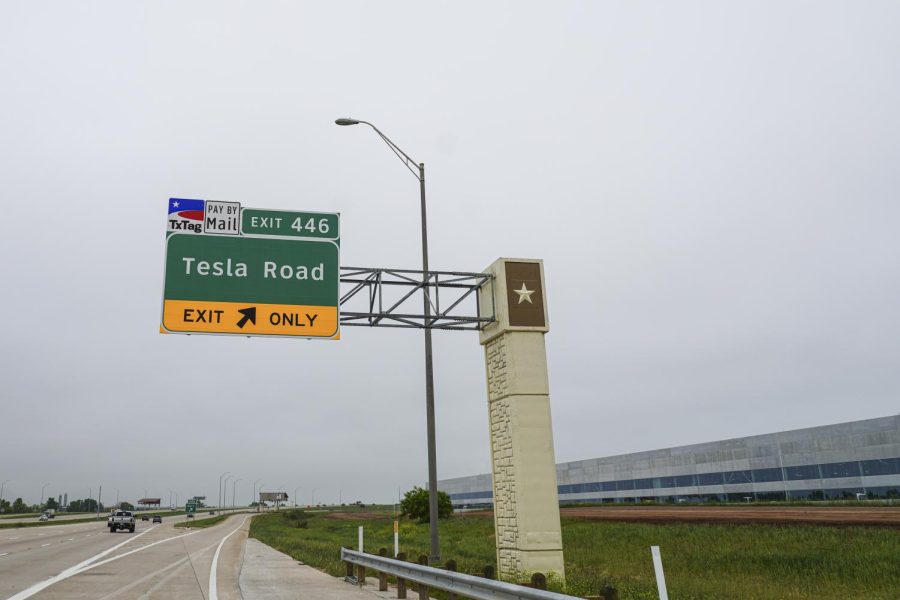Tesla Gigafactory creates job opportunities, environmental concerns for surrounding community
April 25, 2022
Editor’s Note: This article first appeared in the April 22, 2022 flipbook.
Tesla’s new Gigafactory in eastern Travis County could provide UT students and community members with nearly 10,000 jobs, Tesla CEO Elon Musk said on Twitter. However, local environmental justice groups are concerned about how the factory will affect the ecosystem and marginalized communities in the area.
Tesla’s move to Austin comes after the company decided to move its headquarters here last year. The new factory, which opened April 7, will provide jobs in engineering, manufacturing, operations and construction. But the 10 million-square-foot factory could create issues with runoff, water quality and flooding since it is built on top of former swampland, said Paul DiFiore, an advocate with the local environmental justice group PODER.
“We do see Tesla and their factory as part of this historical pattern of environmental injustice in East Austin and eastern Travis County, which puts polluting industries close to people’s homes that you would never have in West Austin,” said DiFiore, project manager for the Colorado River Conservancy.
The Tesla factory is located in a community that is already suffering from the effects of pollution and environmental injustice, said Alexia Leclercq, an environmental justice researcher and organizer with PODER and the CRC project. Some of the problems affecting the community around the Colorado River are drinking water quality, air quality and higher rates of asthma due to mineral mining from the river, Leclercq said.
“Any time a giant corporation wants to come in any area, I think people should be critical of that because their primary interest is, at the end of the day, making profit,” Leclercq said.
Residents are also dealing with economic impacts from the factory, as property values in the area increased 22% in 2021 from the previous year, according to the real estate firm Orchard.
Tesla did not respond to multiple requests for comment.
President Jay Hartzell said UT is one reason companies move to Austin, and these relocations allow the University to make partnerships with the private sector.
“We’re thrilled to be able to work with our partners to increase our students’ ability to learn, gain important experiences and to begin to change the world,” Hartzell said in a statement. “Tesla’s presence here will play a major part of this development for our campus and people.”
John Doggett, professor of instruction at the McCombs School of Business, said he believes Tesla’s move to Austin will influence other major companies to move to the city as well.
“There are going to be people who get jobs because you have suppliers and employees,” Doggett said. “They’ll have money to spend and so there’s going to be restaurants opening, there’s going to be people buying houses, so the ripple effect of this plant is significant.”
DiFiore said, initially, community members surrounding the factory were hopeful the Tesla factory could attract new businesses to the area. However, DiFiore said he saw a shift in the community members’ attitudes after Tesla’s Cyber Rodeo grand opening event invited 15,000 outsiders into the community without receiving any input from people who live there.
“(Musk’s) philosophy on running a company,” DiFiore said, “does not seem to involve being a good neighbor or a good steward of your local environment or engaging with the local community.”











